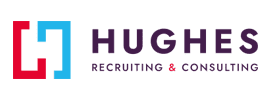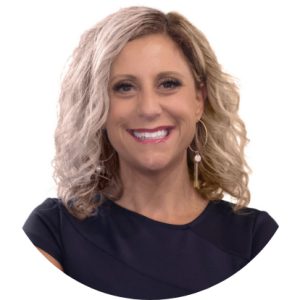How to Effectively Explain Your Employment History
Breaks in employment are normal and can happen for many reasons, like a career change, educational purposes, personal health issues, family responsibilities, or economic conditions like the COVID-19 pandemic. These reasons are fair and make sense, but they might raise concerns for some hiring managers and even make you worry about job prospects.
The good thing is that if you handle them well, the career gaps don’t have to hurt your shot at getting an ideal job. Employers usually understand, especially when you give solid explanations to show that you were still productive during those times.
Why Is It Necessary to Explain Your Employment History?
Sharing your employment history is important because it enables employers to understand your professional direction, evaluate your abilities and experience, and identify any gaps or delays. It gives essential context for your professional development and reassures companies about your qualifications and dependability as a candidate, especially if you’ve taken a career gap.
Contextualize Your Career: 12 Best Practices in Addressing Employment Gaps
There are many ways to explain gaps in your career, depending on the job application process. Here are 12 tips on how to explain employment gaps at different stages of the job application:
1. Focus on Transparency
Trying to hide career gaps with lies can backfire and cause problems if the truth comes out later. Employers value honesty and integrity. A simple explanation is often better and more reassuring than a complicated or unclear one.
2. Emphasize Relevant Skills and Work Experiences Gained
The break from work isn’t the main concern because how you used your time matters more. Even when you were not working, you might have gained skills or experiences that are important for your career. Volunteering, freelancing, taking courses, or working on personal projects can all help your professional growth.
For example, if you took a year off to travel, mention any language skills you learned, cultural awareness you gained, or freelance projects you completed. This explanation shows that you were still involved in activities that improved your professional abilities.
3. Frame Your Explanation Positively
Instead of seeing the gap as a time of doing nothing, show it as a time of growth, learning, and self-improvement. Talk about how the break gave you a new perspective, more energy, and clearer career goals.
If you took time off for personal reasons, highlight the benefits you gained. Maybe you worked on improving your mental health, which now helps you bring a more balanced and strong approach to your work.
4. Prepare to Discuss It During the Job Interview
Before the interview, prepare a concise, honest, and positive explanation that you can deliver smoothly. Practice your response so that it sounds natural and assured.
An effective strategy is to briefly acknowledge the gap, explain the reason, and then swiftly move on to discuss what you learned or achieved during that time. For example:
I took a year off to care for a family member who was ill. During that time, I also took online courses in digital marketing and worked on several freelance projects to keep my skills sharp. I’m now eager to bring my updated skill set and renewed focus to this role.
5. Use Your Cover Letter Strategically
As mentioned earlier, your cover letter is the best place to briefly address employment gaps because it provides the chance to provide the detailed explanation your resume might not allow.
So, be sure to leverage it to provide context for the gap and to highlight your commitment to the field. This way, you can control the narrative before the employer even meets you. Here’s an example:
After a successful tenure at [Previous Company], I took a planned sabbatical to focus on personal development and to complete a certification in [Relevant Field]. This period has allowed me to return to the workforce with enhanced skills and a refreshed perspective, ready to contribute meaningfully to [Potential Employer].
6. Show Evidence of Continued Learning and Development
Employers often worry that you might lose skills during gaps. Show that you stayed involved in your industry and kept learning new things. You can do this through courses, certifications, going to industry conferences, or self-study.
Adding these activities to your resume can help fill the gap and reassure employers that you are knowledgeable about the latest trends and skills in your field.
7. Format Your Resume Properly
Your resume should clearly showcase your achievements and skills. If you have a significant gap in your job history, consider using a functional resume format that emphasizes your skills and experiences rather than in a chronological order.
A functional or combination resume allows you to highlight your qualifications without drawing attention to the gap. For example, place your skills at the top, followed by your experiences and achievements, and then list your job history.
For shorter gaps, omit the months to make them less noticeable. Use action words and include numbers to highlight your skills and accomplishments.
If the gap is about five months or less, you can simply indicate your work history with the year and focus on your achievements. For example:
With Months:
Marketing Coordinator
ABC Company
January 2019 – June 2020
Sales Associate
XYZ Store
September 2020 – Present
This format makes it obvious that there was a gap from July 2020 to August 2020.
Without Months:
Marketing Coordinator
ABC Company
2019 – 2020
Sales Associate
XYZ Store
2020 – Present
Listing the years without the specific month makes the gap less apparent.
8. Understand the Employer’s Perspective
Put yourself in the employer’s shoes. Understanding their worries can help you answer them better. They might worry about your commitment, your ability to get back into work, or the relevance of your skills.
By talking about these worries first, you can show them you are a good fit for the job. For example, you might say:
I understand you have concerns about my time away from the workforce, but I want to reassure you that I’ve used this period productively to enhance my skills and knowledge. I’m eager to bring this new perspective to your team.
9. Use Your Social Media and Professional Platforms Well
Your online presence can affect how employers see you. Use platforms like LinkedIn to show your ongoing professional development, share industry-related content, and connect with your network. Make sure it is up-to-date and matches what you indicate in your resume and cover letter. Highlight your learning, involvement in industry talks and any freelance or volunteer work to ease concerns about employment gaps.
10. Be Confident and Positive
Confidence and positivity are important traits that employers look for. They care more about how you handle problems than the problems themselves. If you are sometimes shy or anxious, practice talking about your employment gap with friends or mentors to build confidence. The more comfortable you are with your explanation, the more convincing and reassuring you will be to employers.
11. Never Lose Sight of the Future
Always ensure that the focus of your conversation is on your future potential and how you can contribute to the company. Emphasize your enthusiasm for the role, your relevant skills, and your readiness to hit the ground running. For example:
I’m excited about this opportunity because it aligns perfectly with my background in [Relevant Field] and my recent studies in [Specific Area]. I’m confident that my skills and experiences will allow me to contribute effectively from day one.
12. Seek Professional Help If Necessary
If the process seems hard, getting help from a career coach or professional resume writer can be useful. They can give you good advice and help you positively explain your story. These professionals can also help you improve your resume and application letter, making sure you present yourself in the best way possible.
LET HUGHES RESOURCES HELP
Hughes Resources is a professional staffing firm with more than 20 years of industry experience. We understand how challenging a job search can be and can guide you through the entire process to help you find the ideal position in a heartbeat.
Reach out to us today and let’s discuss how we can ease your job hunt!
























